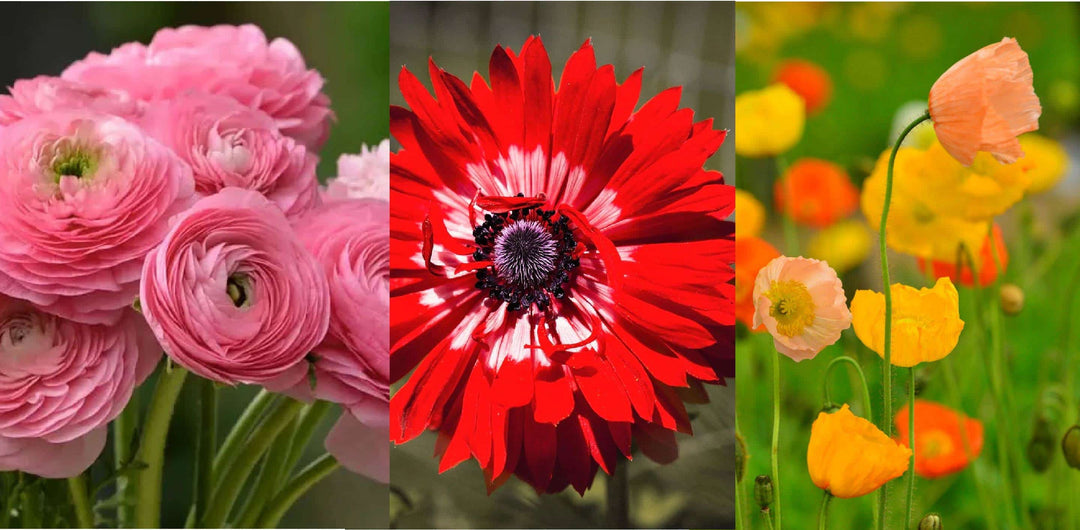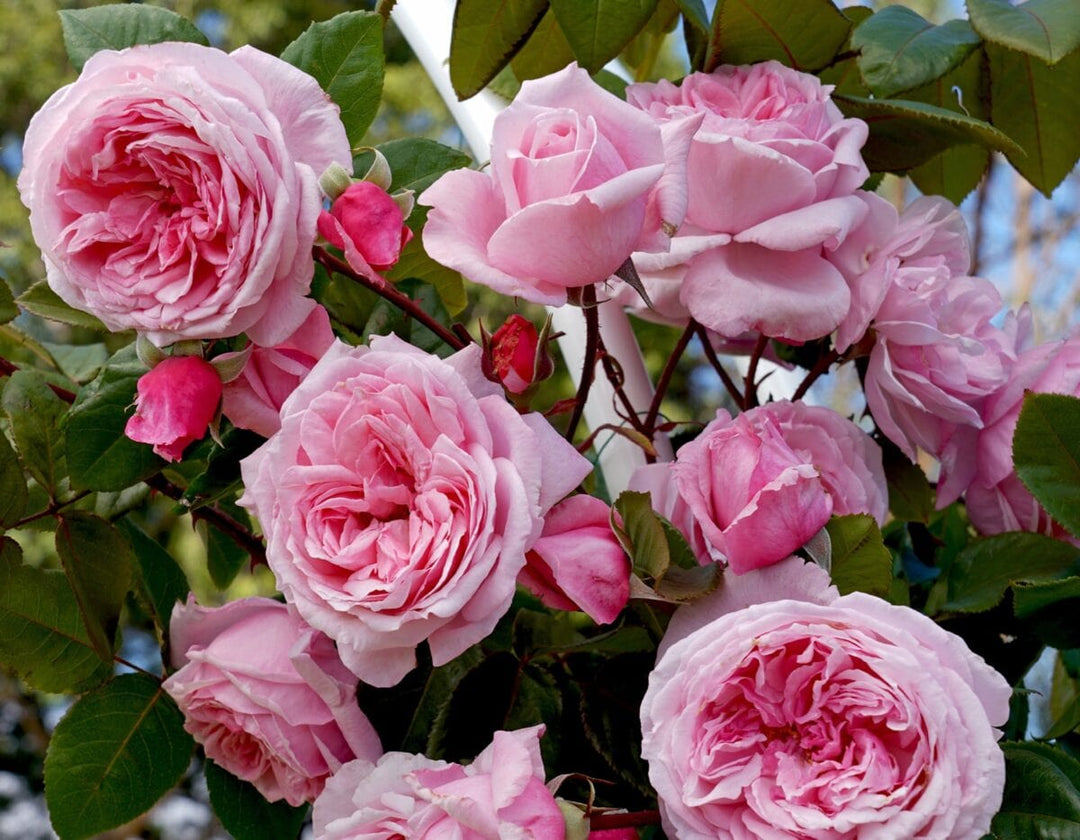Top 5 Houseplants For Health
It's getting chilly out and with the year we've all had, we know that being cooped up indoors can be tiring and mentally straining. Especially if you're working from home, and have kids! Over the years, studies have proven the many benefits that plants have on our health and the proof is in the planting! As we trolled the internet we came across over 73 million search related articles dedicated to the benefits that houseplants have on your health. The health benefits listed included mood improvement, reduced stress and anxiety and improved air quality resulting in less headaches and improved respiratory illnesses.
Not only are they healthy for us, but houseplants are visually stimulating, affordable and easy to take care of when choosing the right ones. In this article, we've compared several "top 10 best houseplants" articles and compiled a true list of the top 5 plants most recognized for their health benefits. Let's dive into the five best of the best houseplants, for when it comes to improving your health.
1. Peace Lily

Not only are these attractive plants great eye catchers, they are one of the best indoor plants to filter out air pollutants which make them great additions to bedrooms and other frequented rooms. The plant's pores can removes harmful pollutants by absorbing toxins such as benzene, formaldehyde, toluene, xylene and carbon monoxide. Peace Lily's also prevent mildew and mold spores by absorbing access moisture. All of these air purifying properties contribute to improved respiratory function and better sleep!
One of the most popular flowering houseplants, the Peace Lily (Spathiphyllum) usually bloom in the spring with long-lasting flowers but can also occasionally bloom during the fall as well. Glossy oval leaves emerge from the soil to form a beautiful contrast against the plants white or yellow blooms. This gorgeous foliage will compliment any room.
| Lighting | Medium, indirect light |
| Water | Water regularly; allow soil to dry out slightly before watering. Mist leaves in hot months. |
| Humidity | High |
| Fertilize | Feed weekly in the summer or use slow-release pellets at the beginning of the season. Do not fertilize in the winter. |
| Skill Level | Beginner. |
| Other Benefits | Air Purifying, Easy Care, Low Light |
2. Dracaena Maginata Dragon Tree

If you're someone who struggles with dry air at home, giving you dust mites and allergies. Try placing a few Dracaena Magenta Dragon Tree's around your home! These health healing plants provide moisture, which studies have proven to reduce colds, dry skin and sore throats. Not only do they provide humidity, but like most air purifying plants they remove toxins ( benzene, formaldehyde, toluene, xylene and carbon monoxide) AND absorb lead that travels through the air and water which has been proven to lead to lead contamination.
Dragon trees (Dracena Marginata) are one of the easier indoor plants to grow. They're slow growing but can reach up to 6 feet tall. They're tough little trees that come in a large variety of leaf colors and shapes. They produce slim, palm like leaves onto its thick 'trunk'.
| Lighting | Bright location with some shade |
| Water | Keep soil moist. Allow it to dry slightly in the winter. |
| Humidity | Does well in normal levels of humidity, dry air will turn the leaf tips brown. |
| Fertilize | Fertilize once or twice in the warmer months. |
| Skill Level | Beginner |
| Other Benefits | Air Purifying, Easy Care, Bright Light, Low Light, Slow Growing |
3. Snake Plant

Studies have shown that the Snake Plant (or Mothers In Laws Tongue...) is one of the MOST oxygen-producing houseplants there is. This plant literally creates more clean oxygen in your home even with the windows closed. While at the same time, not only absorbing the regular toxic bad guys like benzene, formaldehyde, toluene, xylene , carbon monoxide but also C02! If your into Feng Shui, Snake Plants are considered 'negativity fighting' and when placed in a low traffic area of your home, can remove bad energy.
Snake Plants (Sansevieria) are very easy to grow, and very hard to kill. They are often credited as one of the easiest houseplants to take care of. Snake plants are forgiving and the perfect plant for new gardeners.
| Lighting | Grows best in bright light, but will tolerate any light level. |
| Water | Water deeply. Allow soil to dry completely between watering. Discard any excess water. |
| Humidity | Dry, like the desert. |
| Fertilize | Fertilize twice in the growing season |
| Skill Level | Beginner. |
| Other Benefits | Air Purifying, Easy Care, Bright Light, Low Light. |
4. Aloe Vera

The queen of beauty and healing. Aloe Vera are exceptionally known for their healing properties. Their leaves contain a gel that contains vitamins, minerals, amino acids and antioxidants. They're antibacterial, antiviral and antiseptic which helps heal wounds and other skin issues. Aloe Vera is a proven plaque remover, improves wrinkles by reducing UV damage, soothes burns and more!
Aloe Vera plants are succulents, which means they like dry conditions with bright light and infrequent, but deep, watering. The best way to water an aloe is by letting the soil dry completely, then water deeply while allowing it to drain freely from the soil. A great houseplants for beginners! Aloe is mildly toxic if ingested. Keep out of reach of pets and small children.
|
Lighting |
Bright location; but too much direct sunlight over time may cause the plant to dry out and turn reddish-brown. |
|
Water |
Water deeply. Allow soil to dry completely between watering. Discard any excess water. |
|
Humidity |
Dry, like the desert. |
|
Fertilize |
Fertilize yearly. |
|
Skill Level |
Beginner. |
|
Other Benefits |
Medicinal, Easy Care, Bright Light. |
5. Spider Plant

As a houseplant, the Spider Plant has the ability to add moisture to your home. Reducing the chances for airborne toxins to create problems with your health like coughs, colds, sore throats and allergies. This plant will work hard at reducing more toxins than any other houseplant, including nitrogen dioxide, benzene, formaldehyde, toluene, xylene and carbon monoxide. In addition to it's air purifying abilities, Spider Plant roots have medical properties used in traditional Chinese medicine. When extracted, the root has been used to fight inflammation, increase healthy bowl movements and gut health, treat cancer by suppressing tumors and heal bones and burns! Wow!
One of the most popular houseplants! Spider plants (Chlorophytum Comosum) are versatile, come in several different varieties, and super easy to care for. They also look great in a hanging basket! Originating from South Africa, Spider plants were introduced to the Victorian households in England during the 19th century.
| Lighting | Bright location; keep out of direct sunlight. |
| Water | Water regularly, discarding any excess water. Keep soil moist. |
| Humidity | Does well in all levels of humidity. |
| Fertilize | Fertilize bimonthly. |
| Skill Level | Beginner. |
| Other Benefits | Air Purifying, Easy Care, Low Light, Fast Growing, Pet Friendly. |
There you have it! Five amazing health promoting plants to get you through your day feeling lifted, breathing better, kicking negative energy out the door and helping you sleep better at night. When it comes to house plants, not one plant will fix all your health woes. It is recommended to have 1-2 plants in every 100 square feet of space. If you can't commit to that many plants just yet, we recommend starting in a small room and making your way to bigger spaces, with more plants. Wishing you all a happier and healthier space, to keep you and your plants growing your best!









